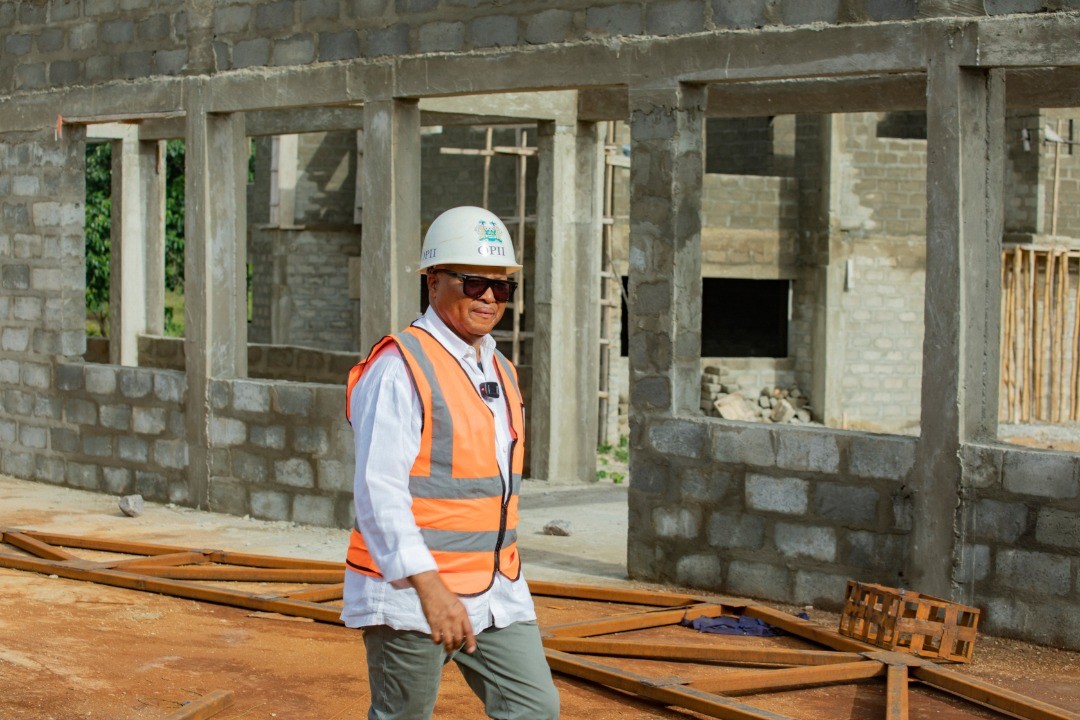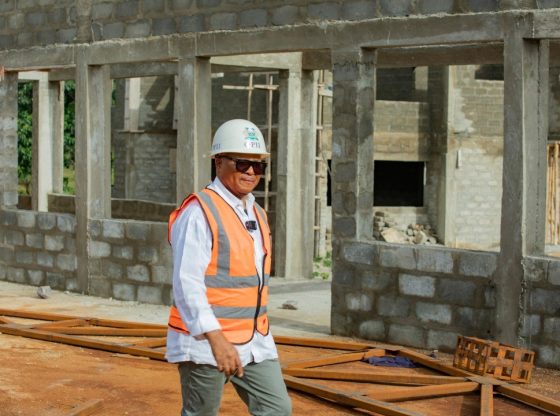The Office of Presidential Infrastructure initiative (OPII) Chairman Dr John E. Tambi on Friday 10th June, 2022 conducted an inspection tour at the ongoing construction site for University of Science and Technology in Gbense Chiefdom,Kono District.

The purpose of the tour was for him to see the progress made on the construction of the University, remaining works to be done, quality of the work, make recommendations on what to change and to know from the contractors the challenges they face at the project site.
Phase one of the project, comprises lecture rooms, administrative buildings, University Labs, toilet facilities, generator room, fencing of the compound and a Multi purpose hall, they are now at the roof level.
President Bio’s government is modernising and streamlining the way that infrastructure is planned, procured, delivered, managed and maintained in Sierra Leone.
In his statement, Dr Tambi thanked the contractors for their commitment to fast track the project and said approach to infrastructural development recognises the need for effective private sector participation, integrated development, shortened implementation cycles, reduced cost and implementation challenges and build the technology expertise for Sierra Leoneans.
“Providing infrastructure for the economy and communities is one of the main ways Sierra Leone will realise inclusive skills development and job creation.
“Our experience has been that infrastructure can only be sustainable if there is cooperation and partnership between all three spheres of government and if there is a common intent
“keeping with this mandate, Office of Presidential Infrastructure initiatives -OPII agreed to expedite the implementation of projects in prioritised sectors such as human settlements, transport, energy, water and sanitation, agriculture and agro-processing, and digital infrastructure
“We are trying to demonstrate a new approach to infrastructure planning, development and implementation, including;
• preventing corruption through transparent tender processes and stronger due diligence;
• greater involvement of communities in design and implementation;
• emphasis on local employment and procurement, and targeted involvement of SMEs, he pondered.


